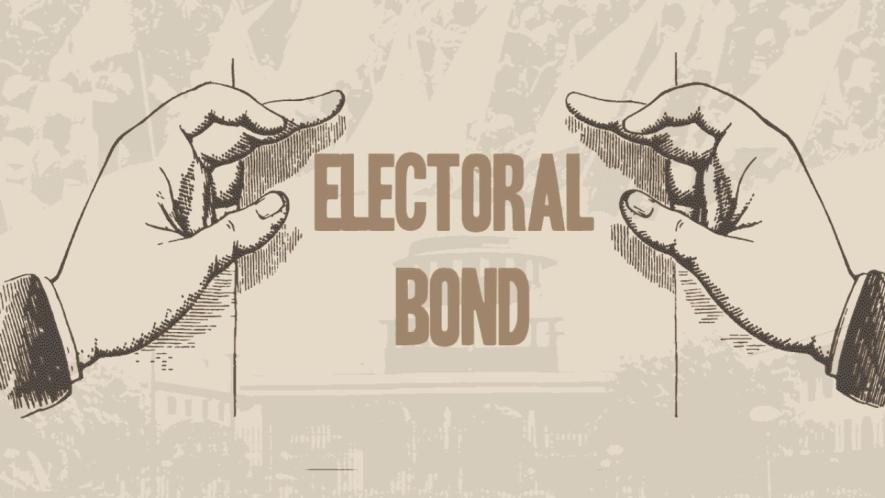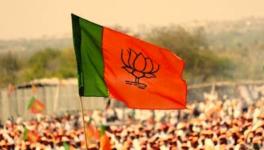SBI vs SC -- Juvenile Innocence or Anarchic Vengeance?

While the background legislative preparation had been started with the Finance Act 2016, the Electoral Bond scheme (EB) was finally introduced by the Narendra Modi government in January 2018. A number of surreptitious fast-tracked amendments/laws were made, along with their speedy institutional implementation and liquidation authorised to India’s largest commercial bank — the State Bank of India (SBI). The SBI is an exceptionally large banking establishment in India, with 450 million clientele, about 23% of banking deposits, and the only Indian representative with an asset of $695 billion, raking at 48 among world’s 100 largest banks, 2023.
Though concerns were raised by several Opposition leaders in the Rajya Sabha — the Upper House of Parliament— along with the Reserve Bank of India and the Election Commission of India, the present authoritarian Union government disengaged or diluted established institutional checks and balances.
It was only after two non-governmental organisations —Association for Democratic Reforms (ADR) and Common Cause— and the Communist Party of India (Marxist) petitioned before the Supreme Court (SC), that the EB scheme was brought under judicial scrutiny.
After Supreme Court’s several interventions on the petitioners’ repeated appeals against the EB scheme, the matter was felt serious enough to be referred for adjudication to a five-judge constitutional bench — the highest vanguard body of the Indian Constitution — in October 2023. Finally, a purposeful pre-election judgement was passed in mid-February 2024 by striking down the EB 2018 scheme as unconstitutional.
In hindsight, only after this historic verdict, the people got a chance to know the donors and recipients of the EBs. A gigantic amount of $1.5 billion donations reached political parties between April 2019 to January 2024, i.e., roughly an election cycle of five years. Around $727 million or 47% of total EBs was accrued to the ruling Bharatiya Janata Party. For a quick comparison with the US, the amount of donations to political parties was around $4 billion over its election cycle of 2016-2022.
Thus, so far, this series of events could be treated as a normal course of institutional processes of nationally important constitutional matters. The next course of actions could be nothing but obvious that the constitutional bench order was duly obligated by the responding institution(s) to not only duly comply with the order of the court, but more importantly, forced public display of their constitutional obligations.
On the contrary, what followed after this constitution bench judgement was an unusual and rarest course of actions. The expected institutional process was broken when SBI ignored the constitution bench’s order that demanded purposeful information and a sensitive timeline for disclosing the EB information. Of course, the follow-up public debate and the Supreme Court’s post-judgement interventions obliged SBI to comply with the order finally on March 21, 2024 — around a month before the general elections, which are underway now.
The lack of seriousness on SBI’s part — more so being the largest financial institution -- placing its clientele of 450 million Indian citizens in embarrassment and possible financial risks, along with its future business reputation at stake, has not only brought its institutional integrity and corporate governance in question within the rule of law orthodoxy, but equally warrants a reflection on its relative power equation vis-a-vis the Supreme Court. The bank is de facto under the control of the Union government, especially in the contemporary authoritarian political context.
How do we read such a non-obligatory casual approach of SBI toward the Supreme Court? Where did the SBI accrue the power from, if any? Can it be treated merely as juvenile innocence of the bank’s nodal official(s)? Or, is it an anarchic vengeance by SBI, on behalf of the Union government, over the judicial power — the Supreme Court?
We can safely rule out the possibility that a professional financial establishment, such as SBI, was naïve about the rule of law and constitutional power hierarchy. The bank, hence, took an anarchist position — emboldened by the current Right-wing majoritarian government — and questioned the authority and legitimacy of the Supreme Court verdict, or at least tried to test its institutional power, if not abdicating completely.
There are increasing cases showing SBI’s lack of seriousness toward the Supreme Court. There has already been a decay in judicial foresightedness and responsibility. While we know the legal maxim “justice delayed is justice denied”, the SBI’s irresponsible approach to the SC verdict has brought possibilities of another maxim, that “justice disobeyed is justice discarded”. The SBI’s anarchist experiment should not be the lasting precedent that questioned the constitutional power of the Indian judiciary. The Indian judiciary has responsibility to prove its position, too.
‘The writer teaches Economics at Tata Institute of Social Sciences, Hyderabad Campus. The views are personal.
Get the latest reports & analysis with people's perspective on Protests, movements & deep analytical videos, discussions of the current affairs in your Telegram app. Subscribe to NewsClick's Telegram channel & get Real-Time updates on stories, as they get published on our website.























